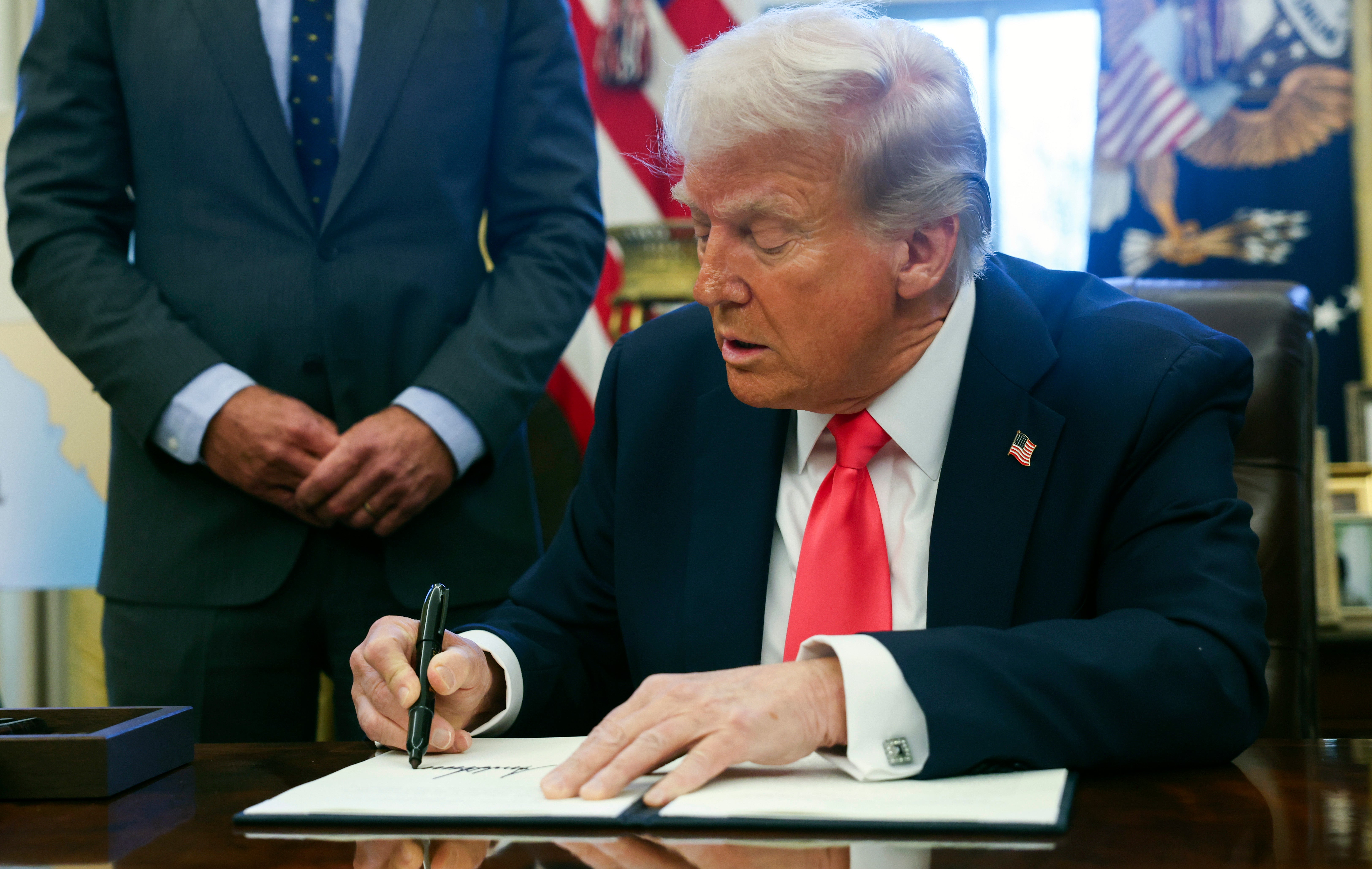The US government will soon require all individuals residing in the country without legal documentation to register with federal authorities, immigration officials have announced.
Failure to comply could result in fines, imprisonment, or both.
According to a statement released by US Citizenship and Immigration Services, a division of the Department of Homeland Security, the registry will be mandatory for all individuals aged 14 and older without legal status.
Each person must register and provide their fingerprints and address.
Parents or guardians of individuals under 14 must ensure their registration.
The registry is the latest move related to President Donald Trump’s campaign promises to crack down on illegal immigration to the US.
Here is what you need to know:

What’s behind the registry?
Federal immigration law has long mandated that individuals living illegally in the US register with the government. These laws trace back to the Alien Registration Act of 1940, enacted amid heightened fears of immigrants leading up to World War II.
The current requirements are rooted in the Immigration and Nationality Act of 1952. However, scholars note that this requirement has been infrequently enforced.
Officials say that now will change.
“The Trump administration will enforce all our immigration laws — we will not pick and choose which laws we will enforce,” Homeland Security spokeswoman Tricia McLaughlin said in a statement. “We must know who is in our country for the safety and security of our homeland and all Americans.”

What is the goal of the announcement?
In part, Tuesday’s Homeland Security statement was purely bureaucratic, a way to announce that the law is again being enforced and how people should register.
Officials said they’d “soon announce a form and process for aliens to complete the registration requirement.”
On its website, the US Citizenship and Immigration Service directs people to create an online account and says additional information on registering will be available “in the coming days.”
The announcement of the registry allows the Trump administration to flex its political muscle on the key issue of immigration. It’s also a signal to people living in the US illegally.
“If you leave now, you may have the opportunity to return and enjoy our freedom and live the American dream,” McLaughlin’s statement said.
What will be the effect of the registry?
Like much about the registry, that’s unclear for now. But legal scholars say the practical consequences may not matter, as people already living below the legal radar are unlikely to register, which would make them far easier to deport.
“But even if it doesn’t actually accomplish much in terms of deporting more people, it sends a signal to the American people that ‘We’re cracking down on immigrants,’ and it will also heighten the fear immigrants already have about what’s going on,” said Stephen Yale-Loehr, a longtime immigration law scholar and retired Cornell Law School professor.




